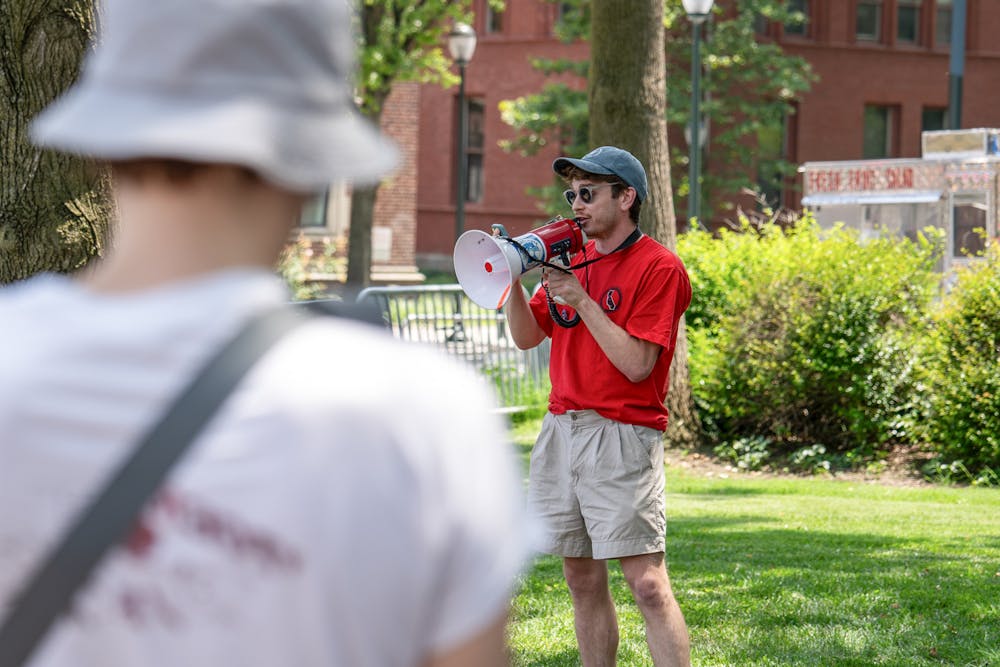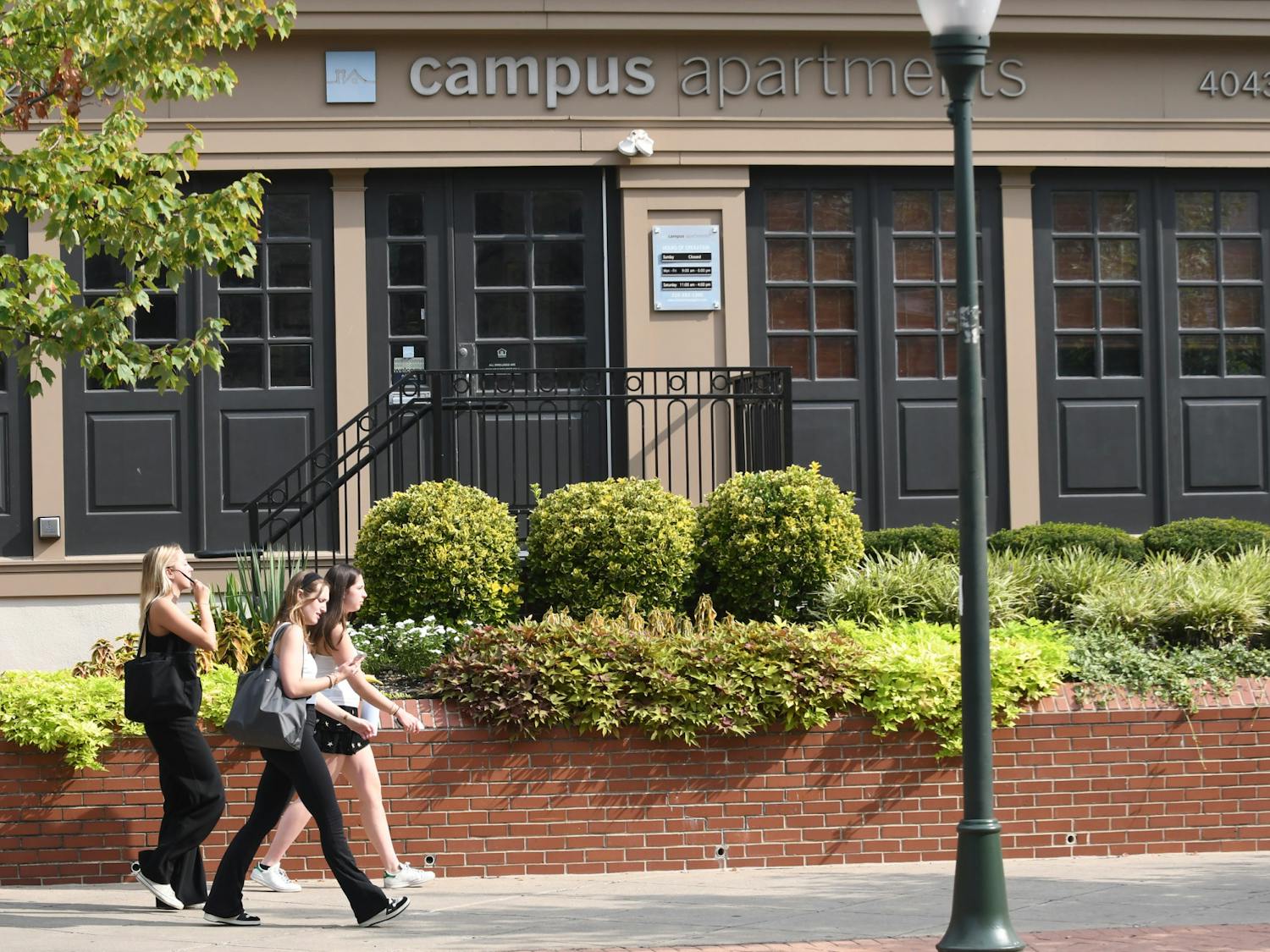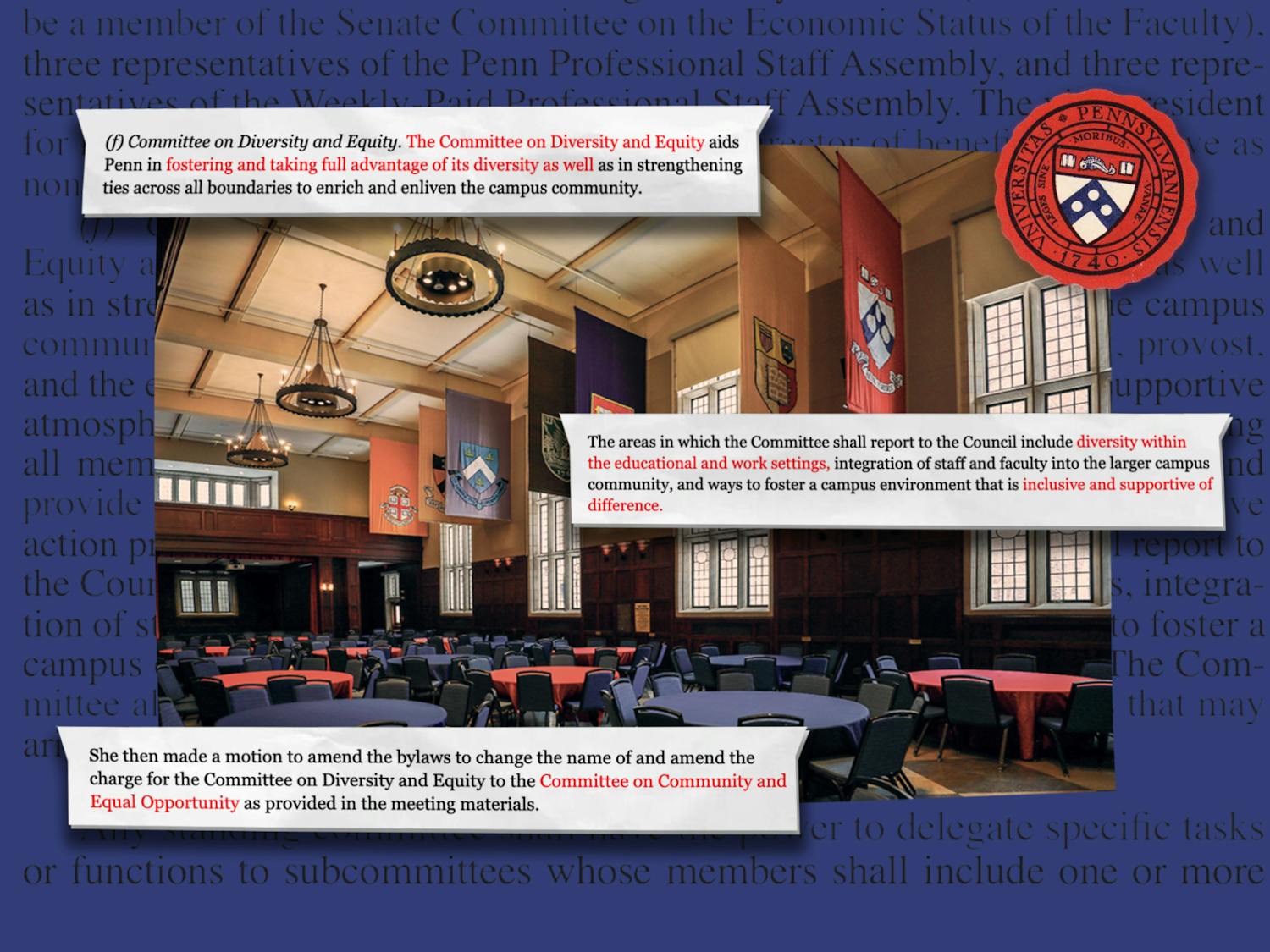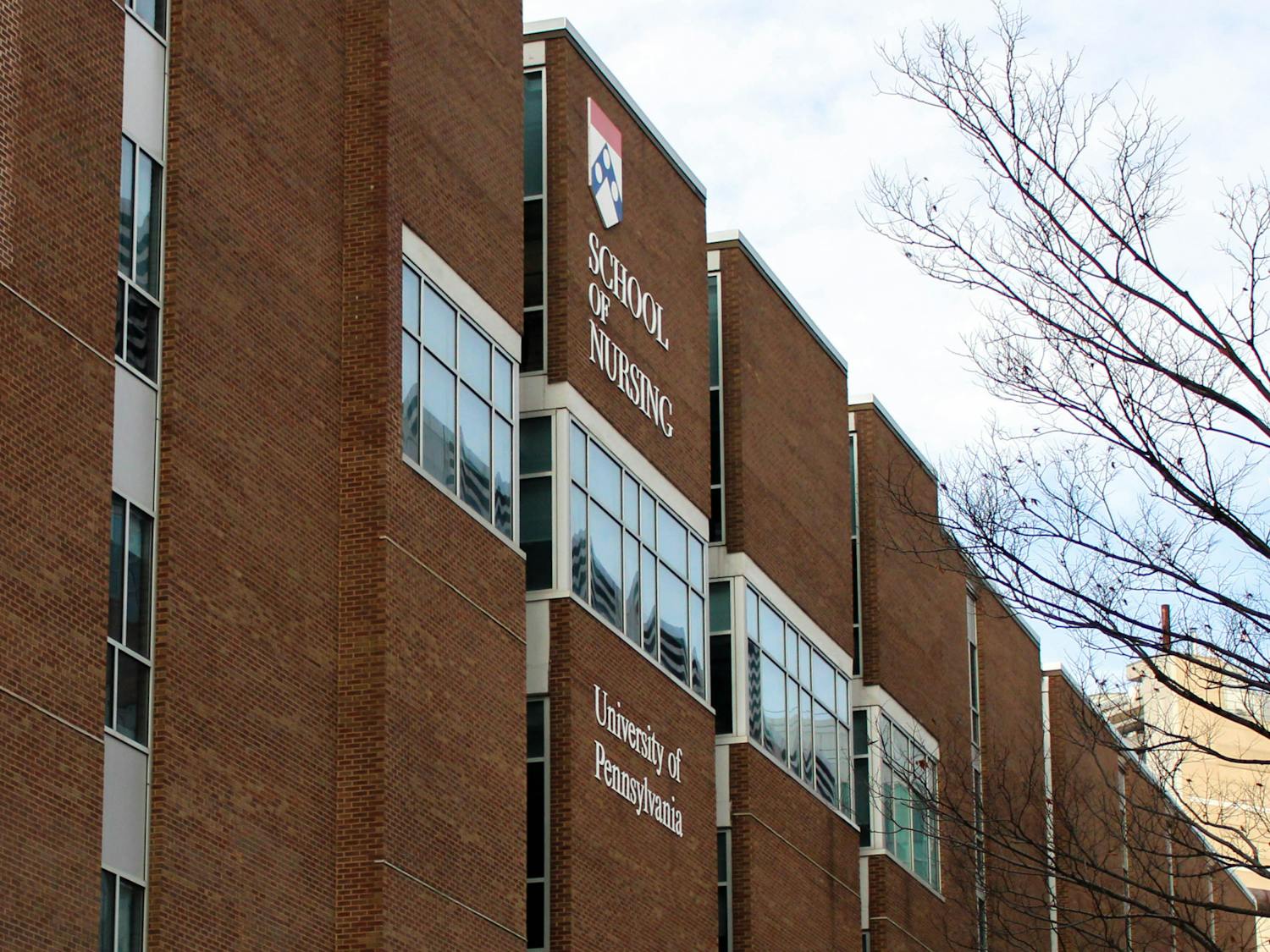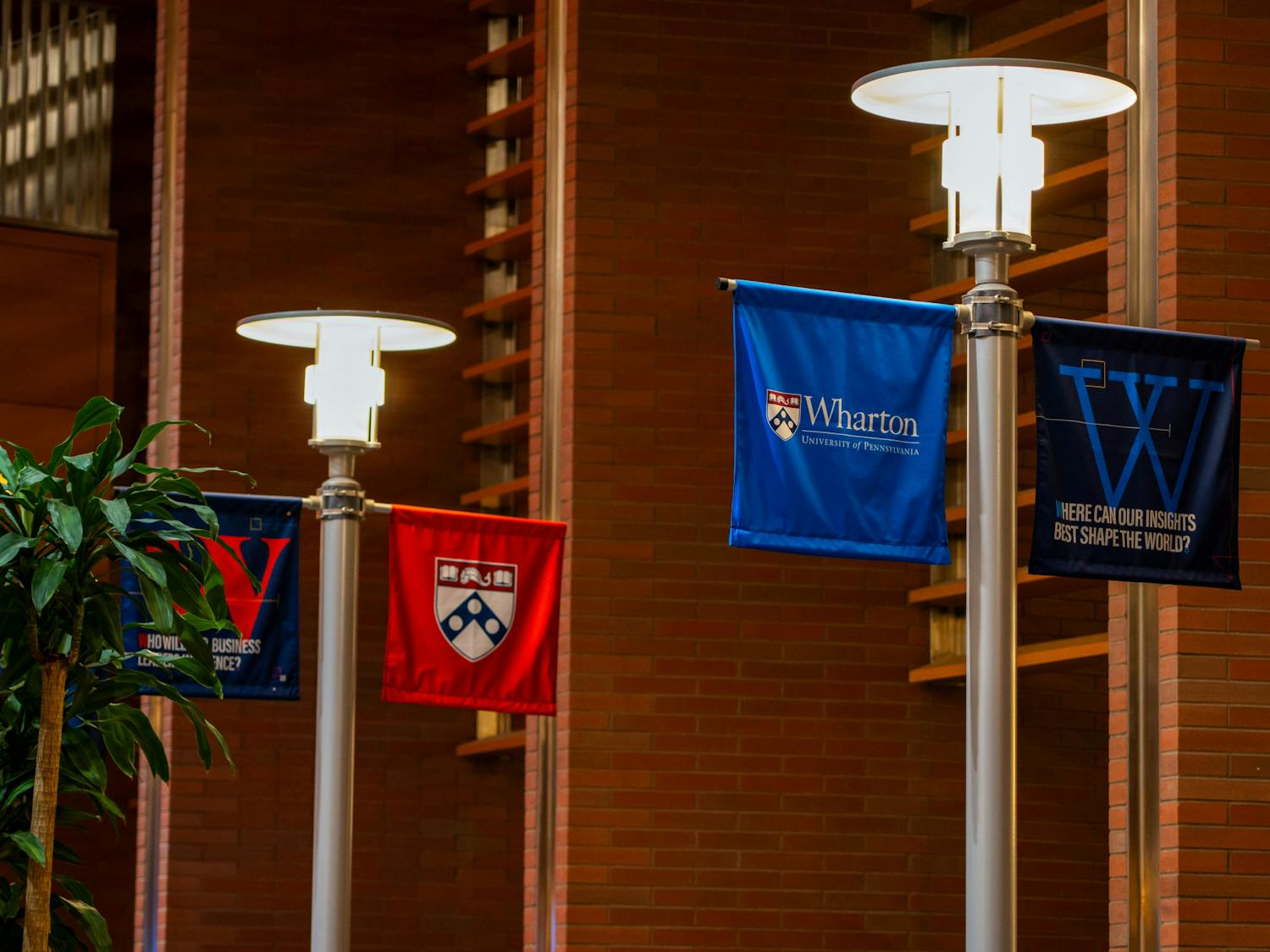The Executive Committee of Penn’s Chapter of the American Association of University Professors condemned Penn’s “anti-union campaign” against Research Associates and Postdocs United at Penn in a statement released Monday, ahead of the group’s vote to unionize.
The July 7 statement from AAUP-Penn called on the University to uphold “the freedoms to teach, learn, study, assemble, and speak [that] are necessary to the integrity of higher education and to democracy itself.” AAUP-Penn also sent a public letter to Penn President Larry Jameson, Provost John Jackson Jr., and Director of Postdoctoral Affairs Marta Bartholomew, urging them to “implement a policy of neutrality in all union organizing drives at Penn.”
“In building a union together, [RAPUP is] organizing to make Penn a better, fairer, and more democratic institution,” the Executive Committee wrote in its statement. “All of us who do the work that sustains Penn’s research and educational mission deserve a meaningful voice in institutional policies that affect our lives.”
The statement classified unions as “essential institutions that provide a democratic voice at work and the capacity to win real change for the better.”
"The statement also criticized Penn’s response to recent unionization efforts, which included the creation of an "anti-union website," attempts to “strip postdocs and research associates of their right to organize at all,” and the repression of "union gatherings in plain violation of federal labor law.”
“The decision to form a union or not to do so lies with the postdocs and the research associates, not with the University,” Vice President of AAUP-Penn Lorena Grundy said in an interview with The Daily Pennsylvanian. “This anti-union campaign is sowing fear, doubt, confusion, and misinformation among the Penn community, and that is a problem.”
Grundy added that the Executive Committee “specifically object[s] to those messages being shared with faculty in an attempt to get faculty to share that information with our postdoc colleagues and mentees.”
“That sets faculty up to deliver intimidating and misleading messages to our postdoc and research associate colleagues and mentees, which threatens our relationships of mutual respect and trust with those colleagues and compromises our integrity,” she said.
Justin Roncaioli — a postdoctoral researcher in the Department of Pathobiology and RAPUP organizer — told the DP that he has been receiving “emails and texts from the University with links to a third party website” every Wednesday around 2:00 p.m.
He emphasized that the email account sending these messages “was initially assembled by” Bartholomew, “who is ostensibly hired to improve postdoc conditions, but is actively preventing unionization.” According to Roncaioli, Bartholomew's email is the one registered to the account that sent the first email containing links to the anti-union website.
Roncaioli added that the biomedical postdoctoral program "has now linked the third party ... antiunion website to their website.”
He said the text, emails, and website were “infantilizing and contain misleading information.”
The Executive Committee also wrote that Penn’s campaign follows “the same playbook it has used to fight recent union organizing drives by Penn museum workers, medical residents, resident advisors, graduate research and teaching assistants, and librarians.”
In 2023, AAUP-Penn issued a statement against anti-union messaging in response to unionization efforts by resident advisors and graduate students the spring prior. The faculty group also expressed its support for graduate student workers’ unionization movement at a 2024 rally in front of College Hall.
AAUP-Penn’s statement comes a week before RAPUP’s official July 16-17 National Labor Relations Board election, the culmination of a yearslong effort for postdocs and research associates to unionize, according to Roncaioli.
In addition to “automated messages,” Roncaioli referenced other “classic anti-union tactics” deployed by the University to delay an election for research associates and postdocs — including arguing that postdocs are “temporary trainees and not workers, and that [they] were ineligible to unionize.”
“They also attempted to fraction or divide our bargaining unit into several different pieces so we'd all have to bargain independently,” he said. “The result of that was [that] the appeal had to be processed, and it delayed our election for about four to six weeks.”
Despite the delays, Roncaioli highlighted that the “NLRB sided with [RAPUP] in every single argument,” and the “ruling actually quicker than we expected.”
The Executive Committee’s letter to University administration referred to a June 12 rally, during which RAPUP demonstrators were “asked to move off campus by university officials,” according to Roncaioli.
“Penn has a pretty restrictive speech ordinance,” Roncaioli said, echoing AAUP-Penn’s statement that “Penn has illegally deployed the Temporary Standards and Procedures for Campus Events and Demonstrations—now in effect for over a year—to repress union gatherings on campus in violation of federal labor law.”
“Under the 1935 National Labor Relations Act, workers have the right to engage in concerted activity— that is, collective action to address shared workplace concerns—and on college campuses, concerted activity routinely takes the form of rallying on campus,” the Executive Committee wrote. ”Yet on June 12, when RAPUP members gathered for a peaceful demonstration at the Button, they were forced off campus.”
Grundy called the University’s response to the rally “disappointing and illegal.”
She also characterized Penn’s actions as a misallocation of resources during a period of financial uncertainty, citing the University’s retainment of the prominent law firm Cozen O’Connor while “diverti[ng] funds from other areas amid hiring freezes, cuts to graduate training, [and] contract non-renewals for non-tenure track faculty.”
“It’s discouraging to see those kinds of measures being taken while funds are being diverted ... to disenfranchise our postdoc and research associate colleagues,” Grundy said.
The Executive Committee also asked the University to institute a “policy of neutrality” toward RAPUP and other unionization efforts.
“The proper posture of an employer during an organizing drive is neutrality: management should simply step back and allow workers to make their decision,” they wrote. “Neutrality not only respects the original spirit of the National Labor Relations Act, but it lays the groundwork for a productive, mutually beneficial relationship with a union should workers vote to form one.”
Grundy noted the significance of neutrality during instances of “government interfer[ence] with Penn's affairs,” pointing specifically to Penn’s historic resolution agreement with the Department of Education to settle its Title IX investigation.
AAUP-Penn previously condemned the University’s chosen “path of political expediency at the expense of trans athletes” in a public statement on July 2 following the resolution agreement.
In the statement, the Executive Committee emphasized that the University’s decision contradicts the collective action of “1100 workers at Penn [who] signed a petition demanding that Penn uphold research and counter funding cuts, affirm sanctuary and legal rights of immigrants, maintain commitments to DEIA, and stand up for equal treatment for LGBTQ+ members of our community.”
Sam Layding — a member of the Executive Committee and graduate research assistant in Penn's School of Engineering and Applied Science — similarly described “a broad pattern” of attempts by the federal government to install “excessive external oversight into universities across the U.S.” in an interview with the DP.
“Those kinds of moves are antithetical to the democratic foundation of our society,” Layding said.
Layding also serves as a member of the bargaining committee for Graduate Employees Together — University of Pennsylvania, Penn’s largest union of graduate researchers and teachers. They emphasized that “it goes without saying that GET-UP stands [with] RAPUP.”
“I would say that we're seeing a stronger anti-union campaign and more direct rhetoric from the university towards postdocs than we saw towards our own campaign,” Layding said. “We’re looking forward to seeing [postdocs and research associates] show how unified they are in the election in the coming weeks.”
English professor and Communications Secretary of AAUP-Penn David Kazanjian previously told the DP that AAUP is in regular communication with Penn unions to offer support.
“From the faculty point of view, we just want a fair and democratic election that the University is neutral in, where the post docs and research associates get to decide for themselves that they would like to unionize,” Grundy said.
“We’re adamant that Penn respect the results of the election and immediately proceed to good faith bargaining,” Roncaioli said on behalf of RAPUP. “We do not want more delays, and it would be extremely disappointing if they did not respect the will of [the] workers when we win this election.”
Senior reporter Alex Dash leads coverage of politics and can be reached at dash@thedp.com. At Penn, he studies history and political science. Follow him on X @AlexBDash.
Finn Ryan is a News Editor at The Daily Pennsylvanian and can be reached at ryan@thedp.com. At Penn, he studies English and political science. Follow him on X @FinnRyan_.


